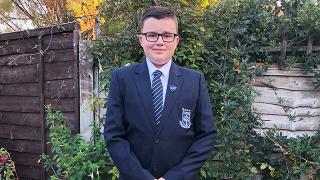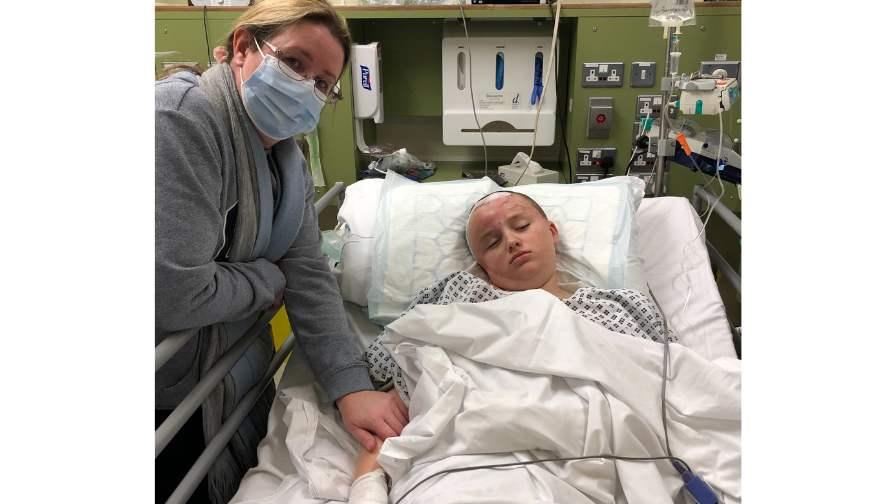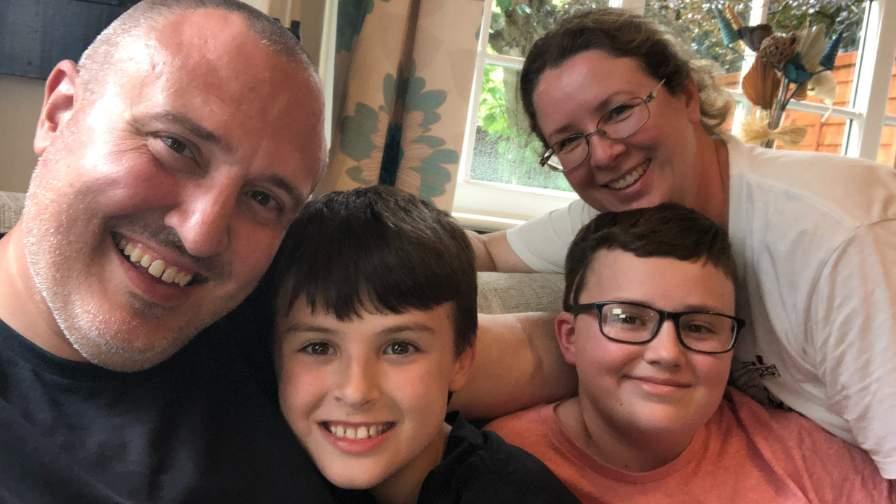breadcrumb navigation:
- Home /
- Research /
- Family stories /
-
current page
Luke's story
Luke's story
Published on
Updated:

Luke's story
Brain tumour
Luke was just 12 when he was diagnosed with a rare low‑grade craniopharyngioma brain tumour in July 2020 – in the middle of the COVID-19 pandemic.
Before becoming unwell, Luke was sporty, social and thriving at school, and enjoying football and tennis. But from summer 2019 he developed headaches, fatigue and, later, double vision. Multiple GP, optician and hospital visits found no cause. Several key appointments were cancelled due to lockdown, delaying his diagnosis.
When swelling on his optic canal was finally spotted, Luke was blue‑lighted to Addenbrooke’s Hospital in Cambridge. Strict pandemic restrictions meant only one parent could visit at a time and his younger brother couldn’t see him at all. With everyone in masks and hospital cafés closed, the experience was isolating and surreal.
Luke’s first surgery – a seven‑hour procedure – removed around 75% of his tumour but left him with lifelong hormone deficiencies, requiring daily medication. He was initially stable, but his tumour regrew within months. In December 2020 he had a more invasive craniotomy*, followed by six weeks of proton beam therapy*.

The second surgery damaged Luke’s hypothalamus, causing constant hunger, rapid weight gain and difficulties with impulse control, alongside ongoing fatigue.
Despite these challenges, Luke returned to school, excelled in his GCSEs, and was made a prefect. In 2024, he moved to a new school for sixth form, where he is now thriving, studying A levels in politics, economics and business, plus AS maths. He hopes to train locally as a primary school teacher.
Luke is also part of the Cambridge Children’s Hospital Youth Forum, helping to shape the new hospital’s design – using his own experience of isolation during treatment to improve care for others.
With the help of funding from Action Medical Research, Dr Ibrahim Jalloh at Addenbrooke’s Hospital in Cambridge and Professor Rachel Isba of Lancaster University explored the impact of the pandemic on the diagnosis, treatment, outcomes and experiences of children with brain tumours and their families.
This study provided an invaluable space for children, young people and their caregivers to reflect and share their experiences of navigating a life-changing diagnosis during an unprecedented global crisis. The findings offer practical insights into how healthcare services could be improved during future disruptions, shedding light on the challenges faced by families during the pandemic, but also providing suggestions for improving healthcare services to ensure a more comprehensive and effective response in future.
Luke went through a life-changing diagnosis and treatment journey during the COVID-19 pandemic and we are so grateful for the support we received. Research that aims to better understand the impact of widespread disruption on children like Luke will hopefully ensure that in the future families like ours won’t experience delays or feel isolated.

Luke continues to have annual scans and lives with the lasting effects of his illness but remains positive about the future. His story is a powerful reminder that childhood brain tumours change lives forever – and that early diagnosis and compassionate care make all the difference.
*A craniotomy is a surgical procedure in which a neurosurgeon temporarily removes a piece of the skull (a bone flap) to access the brain or underlying tissue for treatment.
*Proton beam therapy (PBT) is an advanced radiotherapy that uses high-energy protons instead of X-rays to precisely target and destroy cancer cells, minimising damage to surrounding healthy tissue.
